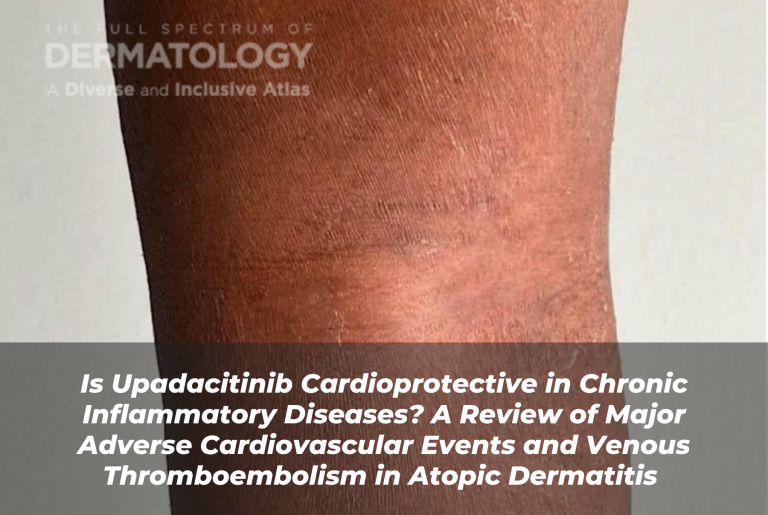
Could an Eczema Treatment Also Protect the Heart? Looking at Upadacitinib and Cardiovascular Risk
Atopic dermatitis (AD) may start on the skin, but its impact goes much deeper. As a chronic inflammatory disease, AD is increasingly linked to cardiovascular risk—a connection likely driven by long-term systemic inflammation. So what happens when we effectively shut down that inflammation?
A new review published in JDD explores whether upadacitinib (UPA), a selective JAK1 inhibitor approved for moderate-to-severe AD, might do more than improve skin—it might help protect the heart and vasculature, too.
The authors examined long-term clinical trial data on upadacitinib and compared the incidence of major adverse cardiovascular events (MACE) and venous thromboembolism (VTE) in treated patients to published background rates among those with moderate-to-severe AD . What they found was intriguing: MACE rates among UPA-treated patients were actually lower than the background rates reported in the literature. The same held true for VTE.
These findings open the door to a provocative question: could JAK1 inhibition with upadacitinib provide cardioprotective or thromboprotective effects in addition to controlling inflammation in AD? While this review doesn’t offer conclusive proof, it’s certainly enough to spark interest—and future investigation.
As dermatologists consider the systemic implications of skin disease, this article reinforces the importance of thinking beyond the surface. Could a treatment aimed at calming the skin’s inflammation also benefit the heart? Time, and further research, will tell.
Citation: Alani O, Wang D, Wahood S, et al. Is upadacitinib cardioprotective in chronic inflammatory diseases? A review of major adverse cardiovascular events and venous thromboembolism in atopic dermatitis.
J Drugs Dermatol. 2025;24(5):doi:10.36849/JDD.9049






